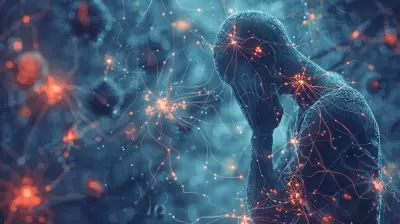How Cognitive Science Explains the Phenomenon of Expertise
26 June 2025
Ever watched a chess grandmaster predict 10 moves ahead or a surgeon operate with pinpoint precision and thought, “How do they do that?” It's not magic. It’s expertise — and cognitive science digs deep into exactly how that level of skill is developed and how the brain makes it possible.
In this article, we’re diving into what the science of the mind has to say about becoming an expert. We'll walk through how our brains absorb, process, and store massive amounts of info, and how practice — not just any practice — transforms beginners into pros.
Let’s get into the mind of an expert.
What Is Expertise Anyway?
At its core, expertise is the ability to perform consistently and efficiently in a specific area. It’s not just knowing a lot — it’s applying that knowledge automatically, almost effortlessly.Think about tying your shoes. You don’t think through every loop or knot anymore, right? That’s a form of expertise, albeit a basic one. Experts just apply that kind of automatic mastery to more complex tasks, like flying a plane, playing the violin, or diagnosing mental disorders.
But how does the brain reach that level of competence? Fasten your seatbelt; cognitive science has some answers.
The Cognitive Roots of Expertise
Cognitive science looks at how we think, learn, remember, and problem-solve. When it comes to expertise, it focuses on how we process information and how our brain structures change through learning.Let’s unpack some of the major theories and findings.
1. Chunking: The Brain’s Shortcut to Mastery
Ever heard of the magical number 7±2? It’s a famous concept in psychology suggesting that our short-term memory can only hold about 7 chunks of information at a time.Experts get around this by using “chunks.” Instead of remembering individual pieces of data, they group related information together. A chess expert, for example, doesn’t see 32 individual pieces on a board; they recognize patterns and positions from thousands of past games.
It's like turning a messy closet into neatly labeled boxes. The info’s still there — just organized in a way that makes it easier to grab what you need.
2. Schema Theory: Building Mental Templates
Schemas are mental frameworks — like blueprints your brain uses to understand the world. The more experience you have, the more complex and refined your schemas become.Experts rely heavily on these mental schemas. A seasoned therapist, for example, might instantly recognize an underlying issue in a client’s story because their brain has seen similar patterns before. It's not guesswork — it’s pattern recognition based on deep cognitive structures.
3. Deliberate Practice: The Engine of Expertise
Let’s bust a myth: Practice doesn’t make perfect — deliberate practice does. It’s not just about clocking hours; it’s about pushing your limits, getting feedback, and correcting mistakes.Cognitive scientist Anders Ericsson showed that elite performers engage in focused, structured practice that targets their weaknesses. That’s how their brains adapt and grow, literally rewiring neurons to solidify new skills.
In short, it’s about quality over quantity — smart effort, not just effort.
Cognitive Differences Between Novices and Experts
So, what actually goes on in the brain of an expert that doesn’t happen in a beginner's?Faster Processing Speeds
Experts often process relevant information faster and ignore distractions. Their brains filter out the noise and zoom in on what matters.Better Memory (But Only for Relevant Stuff)
Experts don’t have a better memory across the board — they’re just better at remembering what’s relevant to their field. A football coach will recall plays and formations, but might still forget where they left their keys.Automaticity: When Skills Become Second Nature
Through repetition and reinforcement, certain skills become automatic. This frees up mental space for complex decisions. Like driving — you don’t consciously think about pressing the brake anymore, do you?Enhanced Problem-Solving Abilities
Experts don't just know more — they actually think differently. Their brains look for deeper structures and long-term solutions rather than just reacting to surface-level problems.
The Role of the Brain’s Plasticity
Here’s the cool part: your brain can change. This is called neuroplasticity. With enough practice, feedback, and intention, your brain literally rewires itself to become more efficient at the task you're doing.Taxi drivers in London, for instance, have been shown to have larger hippocampi — the brain area linked to navigation — because of how much spatial mapping they do. That’s your brain reshaping itself based on what you do repeatedly.
Pretty amazing, right?
Expertise Doesn’t Equal Genius
It’s a common trap to think experts are just born smart. Yes, natural talent and IQ play roles. But they’re not the whole story — not by a long shot.Cognitive science suggests that while intelligence helps, effort, motivation, and consistent deliberate practice are what truly build expertise.
In fact, many experts started off average but stuck with it. They practiced with purpose, learned from mistakes, and gradually got better. And their brains adapted along the way.
The 10,000-Hour Rule: Fact or Fiction?
Malcolm Gladwell popularized the idea that 10,000 hours of practice makes you an expert. But cognitive scientists have drilled into this and found it’s not that clear-cut.Ericsson, who Gladwell based the idea on, actually argued that it’s not the number of hours that matters — it’s how you spend them. Some people could practice for 20,000 hours and never become great if they’re just going through the motions.
So yes, time matters. But intent matters more.
Can Anyone Become an Expert?
Short answer? Mostly yes — but with a few caveats.Cognitive science supports the idea that expertise is overwhelmingly built, not born. However, factors like access to resources, guidance, mental health, and yes, innate aptitudes, can influence the journey.
But don't let that discourage you — your brain’s plasticity means improvement is always possible. Even moving from beginner to "pretty darn good" can open doors and change lives.
Real-World Applications of Expertise
Understanding how expertise works has massive implications:- In Education: Teaching students how to “think like an expert” can transform learning outcomes.
- In the Workplace: Hiring for potential and then building skill through structured training makes more sense than relying on raw smarts.
- In Personal Growth: Knowing how your brain learns can help you become a better cook, musician, athlete — you name it.
Once you grasp how expertise develops, you can reverse-engineer it for any skill you want to master.
Wrapping It Up: What This Means for You
Let’s be real. We all want to be great at something. And thanks to cognitive science, we know it’s not just about talent or luck — it’s about how you use your brain.By thinking in patterns, practicing deliberately, and recognizing how your mind stores and recalls information, you can start developing expertise in almost any field.
So, next time you see someone doing something at an elite level and feel intimidated, remember: they weren’t born that way. Their brain just took a few well-worn paths again and again — and yours can too.
all images in this post were generated using AI tools
Category:
Cognitive ScienceAuthor:

Janet Conrad
Discussion
rate this article
2 comments
Celeste Gill
This article provides an insightful exploration of how cognitive science elucidates the development of expertise. By highlighting the roles of deliberate practice, neural adaptation, and knowledge organization, it effectively demonstrates how mastery in a field emerges through both cognitive and experiential pathways. Excellent read!
December 26, 2025 at 4:06 PM

Janet Conrad
Thank you for your thoughtful feedback! I'm glad you found the article insightful and valuable in understanding expertise development.
James McEachern
This article effectively illustrates how cognitive science unravels the complexities of expertise. By linking neural mechanisms and practice, it highlights the essential role of deliberate learning in mastering any skill. A thought-provoking read!
July 18, 2025 at 4:12 AM

Janet Conrad
Thank you for your thoughtful feedback! I'm glad you found the article insightful in connecting cognitive science with the development of expertise.


